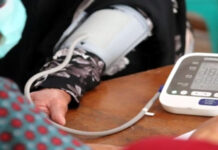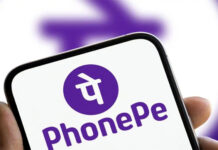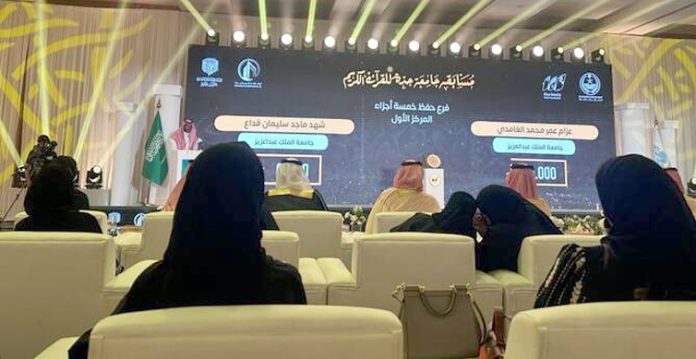The 16th edition of the Jeddah University Qur’an Competition for the Hijri year 1446 AH concluded on Sunday in Jeddah, blending Islamic tradition with cutting-edge technology to make Qur’an studies more accessible, especially for people with disabilities. The closing ceremony was held under the patronage of Prince Saud bin Abdullah bin Jalawi, governor of Jeddah.
More than 1,000 students participated in the event, which featured five categories: memorization and recitation, a section dedicated to people with disabilities, technological challenges in Qur’anic services, Qur’anic calligraphy, and a photography competition. Prince Saud honored the winners and participating institutions at the end of the ceremony.
Among the notable winners was Ibrahim Shaheen from Egypt, who secured first place in the visually impaired category and received a cash prize of SR7,000 ($1,866). Ibrahim, 17, began memorizing the Qur’an at the age of 12 using Braille and shared that reciting five parts for the competition was smooth and easy. He reviews the entire Qur’an approximately every two weeks.
Also Read: Fatwa and AI, Cyber technology should be used to serve people: UAE
The technology challenge was won by the Wijdan app, developed by Jeddah University students Radwa Ammar Abdel-Moaty, Suad Anis Al-Saadi, and Gharam Khalil Al-Sharabi. The app provides emotional support by combining Islamic scripture with modern psychological principles through artificial intelligence.
According to Abdel-Moaty, Wijdan includes an interactive chatbot that recognizes user emotions and responds based on teachings from the Qur’an and Sunnah, along with an emotion library cataloging human feelings mentioned in Islamic texts. The app also features text-to-speech technology and AI-generated illustrations to enhance accessibility for users with disabilities and children.
In another category focused on helping people with disabilities learn the Qur’an, the project “Talaa — With Every Sign, a Verse is Recited,” created by Obay Rayan Ghulam and Aseel Ahmed Al-Hammadi from Jeddah University, won the cash prize of SR10,000. The app enables deaf and mute users to recite the Qur’an using sign language, offering real-time feedback on their accuracy.
Obay explained that deaf and mute individuals constitute about 3.4% of the global population, including approximately 55 million Muslims, yet few specialized resources serve their needs. Talaa aims to empower this community to recite the Qur’an independently without an interpreter. The app utilizes deep learning and computer vision, specifically the YOLO model, to track and validate sign language.
This competition not only celebrates Islamic scholarship but also highlights how modern technology can support the inclusive preservation and spread of religious knowledge.
(This story is sourced from a third-party syndicated feed. Raavi Media takes no responsibility or liability of any nature. Raavi Media management/ythisnews.com can alter or delete the content without notice for any reason.)







